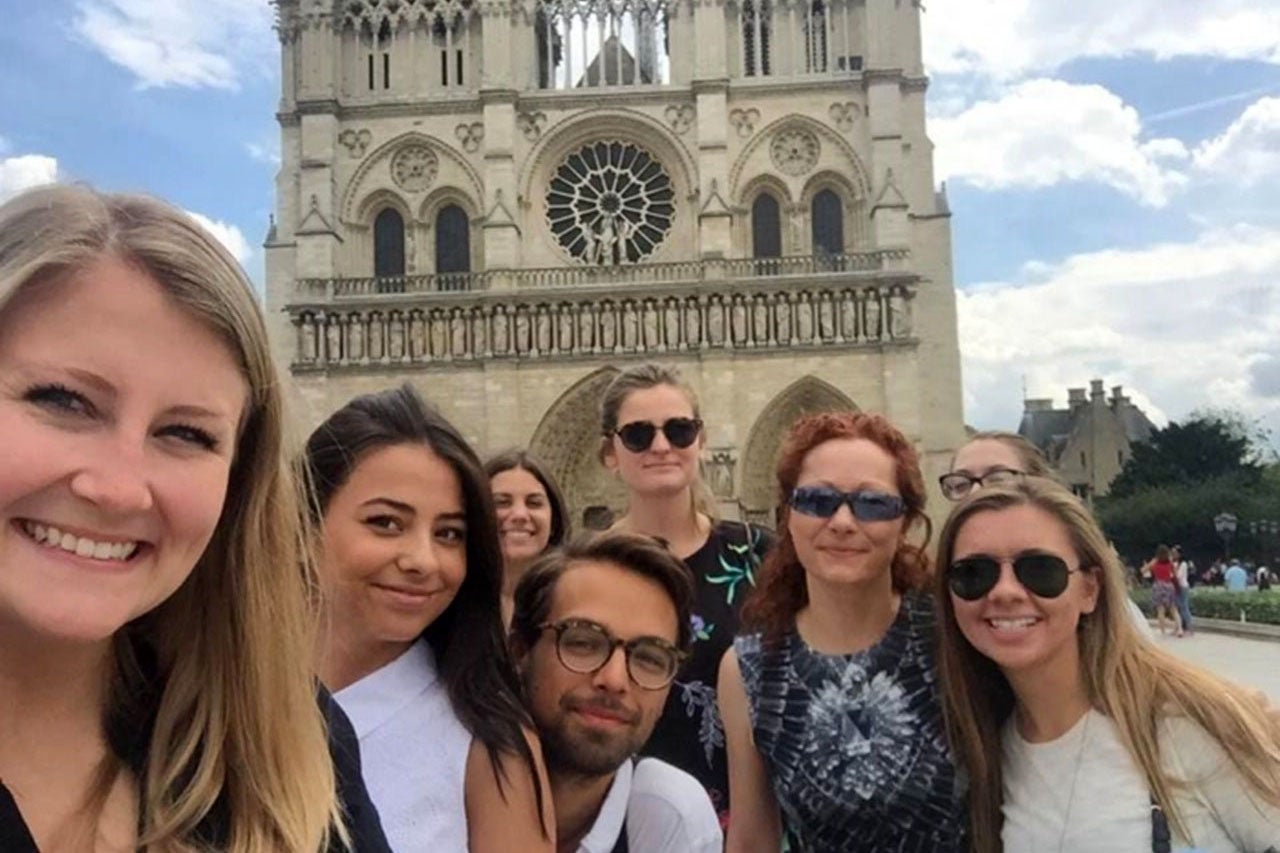When she was a very young girl, Juliette Bourdier would play hide and seek among the pews and statues of Notre Dame Cathedral in Paris.
“When I see her, I remember being a little girl, running and hiding, with the laughing priests shushing us, but playing the game with us,” recalls Bourdier, assistant professor of French, Francophone and Italian studies at the College of Charleston. “I have a special connection to Notre Dame because I was born in Paris, grew up with Notre Dame and until I moved here [to the United States], I saw it every day of my life.”
Bourdier was among the millions of people across the world who watched with deep sadness on Monday as the famed sanctuary was engulfed in flames. The 850-year-old church suffered significant structural damage, but much of the art and religious relics inside were saved.
For Bourdier, who leads a study abroad and internship program in Paris each summer, the sight of the burning church was heart-wrenching. Because of the building’s religious significance. Because of its cultural significance. Because of its history.
“Notre Dame is special because of where she sits,” Bourdier says. “It is known that underneath, you have one of the first Christian basilicas. More important, underneath you have some Gallo-Roman vestiges, and even traces of the Parisii, Celtic Iron Age people, some of my ancestors. The very first Parisians were living there; this is highly symbolic.”
The historical significance of Notre Dame to the French people cannot be understated, Bourdier says, adding that it is one of the oldest buildings in Paris. It carries personal history, too. Bourdier’s mother remembers vividly the bells of Notre Dame ringing after the liberation of Paris during World War II and her father (Bourdier’s grandfather) receiving the Cross of Honor on the forecourt of the cathedral.
“It witnessed invasions, wars, reconciliations, revolutions (she was pillaged during the revolution) and celebrations during the Reform (the Huguenots ransacked statues in their day),” says Bourdier, a specialist in medieval European literature and culture. “We all have a different connection with the cathedral. It is also a marker, like the Eiffel Tower. So many historical events happened in front of or inside of Notre Dame.”
As she watched the smoke and flames engulf the cathedral on Monday, Bourdier recalls, it felt like “someone ripped my heart off my chest.” She adds that Notre Dame “is the heart of Paris, way beyond religion.” She felt deep relief with her fellow Parisians, and the world, that the interior was saved and that French President Emanuel Macron has declared that the country will rebuild Notre Dame.
“This is not the Cathedral of Paris, but the Cathedral of all the French, including those who never visited it,” she says. “The thing is, Notre Dame is not French anymore. It belongs to the humans, whether they are Christians or not, because it is a marker worldwide. It belongs to anyone who wants to claim it in his or her heart, like I claimed [the Cambodian temple] Angkor Wat after I fell in love with her astonishing majesty.”
Featured image: Juliette Bourdier, second from right, with CofC students Maddie Stauss, Carly Long, Davis Haithcok, Frannie Petock, Lucy Walls, Katie Funk and Rachel Parola during a study-abroad program in the summer of 2018.




